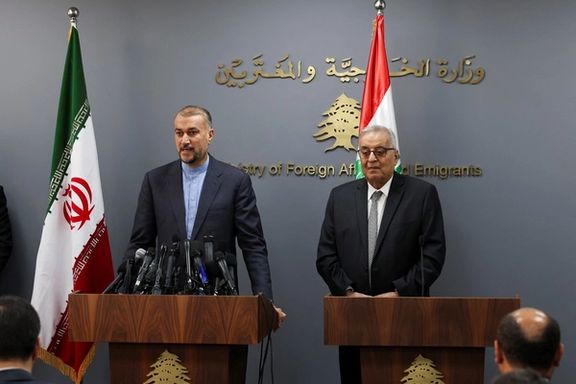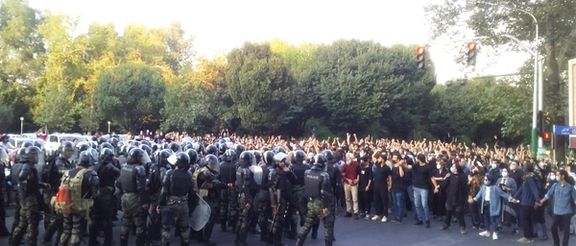Iran’s Top Diplomat Says 'September Deal' With US On Table

Iran's Foreign Minister Hossein Amir-Abdollahian says that last year there was a “September document” that brought Tehran and Washington close to a nuclear agreement.

Iran's Foreign Minister Hossein Amir-Abdollahian says that last year there was a “September document” that brought Tehran and Washington close to a nuclear agreement.
The foreign minister, speaking to the semi-official Ettelaat newspaper in Tehran, argued that the anti-government protests, which erupted in September 2022, and issues related to the war in Ukraine set back a possible deal with the United States.
He claimed that the Biden administration first thought that the protests would lead to a revolution in Iran and rejected the deal, but soon began sending secret messages that “we are ready to conclude the JCPOA talks.”
Amir-Abdollahian was referring to US statements in October 2022 that the 2015 JCPOA nuclear deal was no longer their focus and they were preoccupied with defending the rights of protesting Iranians.
He added that the recent Iran-US agreement to release a part of Iran's frozen assets abroad as part of a prisoner swap deal may help further the nuclear talks.
Robert Malley, the former US envoy for Iran told CNN on October 17, that "Right now the talks on revival of JCPOA are not on the US agenda; the focus is on what's happening in Iran as the talks are stalled," adding that “Iran has taken a position in those talks for the past two months, which is simply inconsistent with a return to the deal.”

IN January, Iran International reported that Malley had held secret meetings with Iran's envoy to the United Nations in New York in December. When asked at the time, the State Department did not deny the report, instead it confirmed that messages were being exchanged with Tehran. Therefore, Amir-Abdollahian's account that the Biden administration soon changed its tune about nuclear talks as protests were taking place in Iran seems to reflect the reality.
Malley has since been suspended without pay in what is reported to be an investigation by the FBI regarding possible violations of his security clearance privileges.
Amir-Abdollahian told Ettelaat that presently “The Sultan of Oman has put forth an initiative and we held indirect talks with the Americans…Now we have two documents on the table; one is about the release of Iran’s [frozen] funds,” but he did not elaborate on the second document. He went on to say that the JCPOA is not off the table, although it was perhaps “not a great agreement.”
Various media sources have reported that Tehran and Washington are discussing an unofficial deal, whereby Iran would limit its uranium enrichment and Washington would agree to the release of all funds frozen in several countries totalling around $20 billion.
Before this interview, Amir-Abdollahian in a press conference in Beirut on Friday had said that the deal with the US to release American prisoners and Iran’s funds can help advance the nuclear talks. He had also mentioned that the Sultan of Oman has tabled an initiative and Iran and the United States have already started exchanging messages.
Asked whether this can lead to the revival of the 2015 nuclear deal (JCPOA), Amir-Abdollahian said that Qatar and Oman and furthering the talks. "We have always been following the route of diplomacy and negotiations. Naturally, if the prisoner swap and the deal over releasing Iran's assets work well, this will help the lifting of the sanctions."
He stressed that Iran has the will to return to its commitments under the JCPOA and to follow diplomacy to have the sanctions lifted.
Meanwhile, he denied reports about his meeting with a US official in Beirut and said: "Some media like to link different matters."
Clearly, the Islamic Republic is under severe domestic pressure to lift US sanctions to address its deteriorating economic situation.
While some Iranian officials close to the Raisi administration are upbeat about Iran's upcoming membership in BRICS, Etekhab website wrote in an analysis: "For a country that is under the most severe economic sanctions, believing in lackluster alliances is like a nightmare."
"These sanctions have left Iran breathless as its allies will take advantage of Iran's confrontation with regional and international powers," Entekhab added that overestimating what BRICS can do for Iran is unrealistic. The website added that the Raisi administration is not fully aware of the implications of its membership in organizations such as BRICS or Shanghai Cooperation Organization.
Updated on Sept. 4 at 10:00 GMT